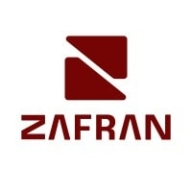


Tenable Security Center and Microsoft Defender Vulnerability Management compete in the cybersecurity domain, with Microsoft Defender having an advantage due to seamless integration within its ecosystem.
Features: Tenable Security Center offers extensive vulnerability scanning, in-depth analytics, and compliance checks. Microsoft Defender Vulnerability Management provides excellent integration with Microsoft products, advanced threat intelligence, and automated remediation features.
Room for Improvement: Tenable Security Center could improve its user interface, streamline its setup process, and optimize system resource usage. Microsoft Defender could enhance its reporting capabilities, expand its threat database, and offer more customization options.
Ease of Deployment and Customer Service: Tenable Security Center supports a flexible deployment model but requires an intensive setup process, with responsive customer support. Microsoft Defender's deployment is simplified as part of Windows services, benefiting from extensive online resources and community forums.
Pricing and ROI: Tenable Security Center may have a higher initial setup cost, offering comprehensive features and data. Microsoft Defender, typically with lower setup costs, integrates with existing Microsoft licenses, potentially providing higher ROI due to its integration.



Zafran Security integrates with existing security tools to identify and mitigate vulnerabilities effectively, proving that most critical vulnerabilities are not exploitable, optimizing threat management.
Zafran Security introduces an innovative operating model for managing security threats and vulnerabilities. By leveraging the threat exposure management platform, it pinpoints and prioritizes exploitable vulnerabilities, reducing risk through immediate remediation. This platform enhances your hybrid cloud security by normalizing vulnerability signals and integrating specific IT context data, such as CVE runtime presence and internet asset reachability, into its analysis. No longer reliant on patch windows, Zafran Security allows you to manage risks actively.
What are the key features of Zafran Security?
What benefits can users expect from Zafran Security?
In industries where security is paramount, such as finance and healthcare, Zafran Security provides invaluable protection by ensuring that only exploitable vulnerabilities are addressed. It allows entities to maintain robust security measures while allocating resources efficiently, fitting seamlessly into existing security strategies.
Microsoft Defender Vulnerability Management enables organizations to identify vulnerabilities, manage patches, and fortify threat detection. It offers endpoint assessments, cloud incident management, and dynamic security through Microsoft's Security Scorecard integration.
Organizations leverage Microsoft Defender Vulnerability Management for advanced threat detection and response. It provides robust tools for vulnerability assessment and cloud incident management, integrated with Microsoft's Security Scorecard to enhance dynamic security profiling. Key features include automatic patch deployment, security configuration management, and seamless integration with Microsoft platforms, benefiting both on-prem and cloud environments. Organizations can track vulnerabilities with severity-based reports, helping manage outdated software and minimizing threat exposure.
What are the key features of Microsoft Defender Vulnerability Management?In healthcare, Microsoft Defender Vulnerability Management helps manage compliance with health regulations, while in finance, it aids in securing sensitive data from cyber threats. Manufacturing sectors benefit from its patch management, keeping operational technology systems less vulnerable to disruptions.
Get a risk-based view of your IT, security and compliance posture so you can quickly identify, investigate and prioritize your most critical assets and vulnerabilities.
Managed on-premises and powered by Nessus technology, the Tenable Security Center (formerly Tenable.sc) suite of products provides the industry’s most comprehensive vulnerability coverage with real-time continuous assessment of your network. It’s your complete end-to-end vulnerability management solution.
We monitor all Risk-Based Vulnerability Management reviews to prevent fraudulent reviews and keep review quality high. We do not post reviews by company employees or direct competitors. We validate each review for authenticity via cross-reference with LinkedIn, and personal follow-up with the reviewer when necessary.